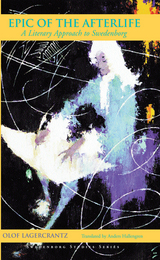
As a poet and storyteller, Olaf Lagercrantz approaches the works of Swedish scientist-turned-seer with the eyes of an artist, exploring the complex philosophy of one of Sweden's most famous sons with curiosity and open wonder. Lagercrantz examines Swedenborg's life, his experiences in heaven and hell, and writings about faith, the nature of the universe, and human relationships as works of literature, casting a new light on Swedenborg's ideas that often differs from the usual theological interpretations.
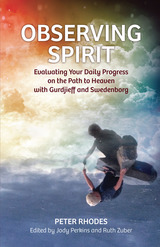
Based on the teachings of G.I. Gurdjieff, P.D. Ouspensky, Maurice Nicoll, and Emanuel Swedenborg, Peter Rhodes presents a practical guide to spiritual progress. Stressing personal responsibility for overcoming negative traits, each chapter explains how we can realize our true spiritual potential by cultivating awareness of our baser reactions and by applying the tools of Gurdjieff's spiritual method, "The Work," to our everyday existence.
Rhodes joins "The Work" with the spiritual philosophy of Emanuel Swedenborg to enhance our understanding of how the world of spirit intersects our lives on the earthly level. At the conclusion of each chapter, tools for measuring the reader's progress are provided in the form of weekly tasks and meditations. This book can be used in group workshops or by the individual.
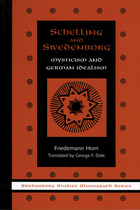
In this groundbreaking study, Friedemann Horn documents Friedrich Schelling's intense personal engagement with Emanuel Swedenborg's theological works, an engagement fueled to a considerable extent by the untimely death of two women whom Schelling loved. In Swedenborg's vision of the spiritual realm, Schelling found an invaluable resource that supplied an underpinning for his own romantic idealism. Horn details the linguistic similarities in the writings of the two philosophers and shows how, particularly in Clara and the Stuttgart Lectures, Schelling employs the ideas of the "seer of the North."
The scholar will find suggestive contacts with Goethe, Wagner, and Franz von Baader, and with a theosophical tradition whose importance may have been overshadowed by Kant's scathing criticism of Swedenborg. In giving access to that undercurrent, Horn provides a unique and neglected view of nineteenth-century thought.
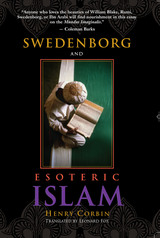
This volume makes two essays by Henry Corbin, the eminent French scholar of Islam, available in English for the first time. Although his primary interest was the esoteric tradition of Islam, Corbin was also a lifelong student of the theological works of Emanuel Swedenborg. The first essay, "Mundus Imaginalis, or The Imaginary and the Imaginal," clarifies Corbin's use of the term he coined, mundus imaginalis, or "the imaginal world." This important concept appears in both Swedenborgian and esoteric Islamic spirituality. The second piece, "Comparative Spiritual Hermeneutics," compares the revelation of the internal sense of the sacred boks of two distinct religions, Christianity and Islam.
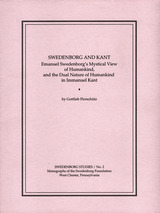
German philosopher Immanuel Kant had a complicated view of the writings of Swedish theologian Emanuel Swedenborg. Although Kant wrote a book that was harshly satiric of Swedenborg's ideas (Traume eines Geistersehers, or Dreams of a Spirit-Seer in English), later in life he appeared to reverse this opinion. Florschutz discusses this tension in Kant's thought in this short monograph.
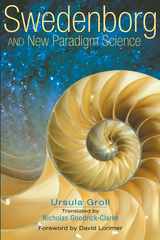
Ursula Groll relates the metaphysical thought of Emanuel Swedenborg to current New Paradigm science, especially to the interface of science and spirituality. By providing extensive excerpts from Swedenborg's works and drawing parallels between his visionary insights and the works of philosophers and physicists such as David Bohm, Fritjof Capra, Rupert Sheldrake, and Albert Einstein, Groll shows how Swedenborg's voyage of discovery led him increasingly from the great to the small, from the outer to the inner, until he discovered the mirror of the universe, the seat of the Divine as the source of truth.
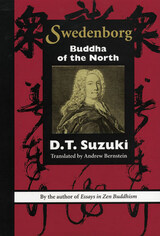
"…important for anyone who is concerned with inter-religious dialogue and the meaning of… visionary mysticism."
--The Reader's Review
This first complete English translation of two works by Zen scholar D.T. Suzuki introduces Emanuel Swedenborg and compares Swedenborgian thought to Buddhism. The first work stresses Swedenborg's message that true spirituality demands an engagement in this world; the second compares Swedenborg's description of heaven to the paradise of Pure Land Buddhism.
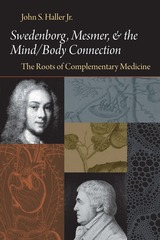
Complementary and alternative healing encompass a wide range of practices that share a common ground: the belief that our physical well-being is inextricably linked to an unseen world beyond our physical senses. Our view of that world can be traced to two key thinkers: Emanuel Swedenborg and Franz Anton Mesmer.
Who were these men, and what shaped their thought? How did their ideas capture the public imagination? How did they speak to movements as diverse as utopianism, Spiritualism, psychic healing, and homeopathy? Historian John S. Haller traces the threads of Swedenborg’s and Mesmer’s influence through the history of nineteenth-century medicine, illuminating the lasting impact these men have had on concepts of alternative healing.
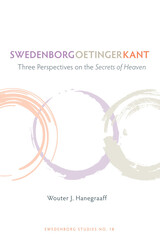
In this meticulous study, Wouter Hanegraaff examines the structure, themes, and development of Emanuel Swedenborg's massive work Secrets of Heaven (Arcana Coelestia), published between 1749 and 1756. Written as a work of biblical exegesis (of Genesis and Exodus), Swedenborg also interpolated material on his visionary experiences, which have long fascinated readers.
In the second part of the study, Dr. Hanegraaff examines the contemporary reception of the multi-volume work, particularly the critical reactions of Immanuel Kant and Friedrich Christoph Oetinger. He finds that Swedenborg's biblical exegesis, so important in his divine calling, was largely ignored in favor of the mystical experiences.
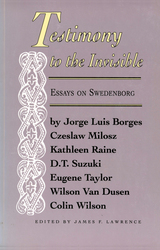
This collection of essays highlights the influence of Swedish visionary Emanuel Swedenborg (1688-1772) on art, spirituality, and culture. Opening with an essay by Spanish-language writer and metaphysician Jorge Luis Borges, from which the collection draws its name, the volume includes a description of Swedenborg's influence on Fyodor Dosteovsky by Czleslaw Mloscz; a look at Swedenborg from a mystical perspective from Wilson Van Dusen; the transcendentalist connection with Ralph Waldo Emerson in an essay by Eugene Taylor; and Buddhist scholar D. T. Suzuki's describes similarities between Swedenborg's philosophy and Buddhism. Essays by Kathleen Raine on Swedenborg's poetic influence and Colin Wilson on the psychological perspective on Swedenborg's visions round out the collection.
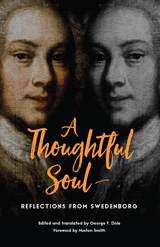
George F. Dole, Harvard Ph.D., has translated and arranged by theme a selection of passages from Swedenborg's works on life, heaven and hell, and the nature of God. This book is an accessible introduction for the reader new to Swedenborg, as well as a concise reference for those familiar with his philosophy. [Swedenborg's] philosophy is about as practical as one could ask. Ascetism is not the way to God. ... A good person can be saved with any religion or with no religion.
"George F. Dole ... has done us a great service in bringing Emanuel Swedenborg back to the attention of our distracted age."
-from the foreword by Huston Smith
READERS
Browse our collection.
PUBLISHERS
See BiblioVault's publisher services.
STUDENT SERVICES
Files for college accessibility offices.
UChicago Accessibility Resources
home | accessibility | search | about | contact us
BiblioVault ® 2001 - 2024
The University of Chicago Press









